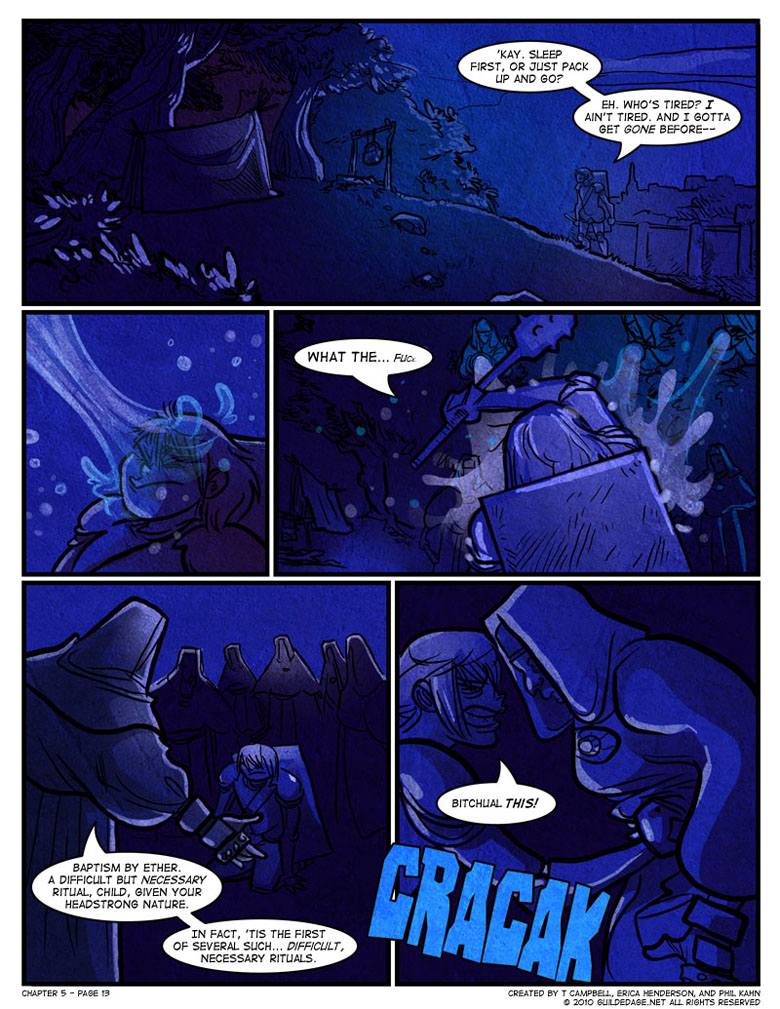Annotated 5-13
 After their last, humiliating loss, the Sisters are practical enough to stack the odds against Frigg this time.
After their last, humiliating loss, the Sisters are practical enough to stack the odds against Frigg this time.
I can’t bring myself to get into the TV Handmaid’s Tale; reading the book in college was a grim enough experience, and that was during a less fraught political moment than this. But I’m grateful the TV series didn’t come out until well after we’d established (and demolished) the Sisterhood. They share the general theme of “conformist religious tyranny in old-fashioned clothes,” but they really aren’t much alike beyond that.
Mother Scarlett makes women feared tyrants in exchange for stamping out their individuality: they ultimately serve as extensions of her will. In Margaret Atwood’s dystopia, fertile women are brood mares, and even infertile women are put into a variety of castes, more specialized and limited than the nuns. Only one or two of these castes get to do anything very exciting, and most of them are explicitly subservient to all men, not just to their leader. By contrast, we see the Sisterhood performing a variety of colorful tasks in their introductory sequence, which also clarifies that they are feared and respected by just about everyone else in Gastonia, especially men. Neither option is great, but even knowing what Frigg is about to go through, I’d rather be a woman under Scarlett’s thumb than one in Gilead.











I imagine it’d suck ETHER way!
The Sisterhood might say it’s just an aesthetic, but it certainly isn’t Frigg’s aesthetic.
Or anaesthetic. (Unless I’m being dense, and you were actually intentionally just suggesting the joke but never making it.)
Your words, not mine! :) (Yes, it was intentional.)